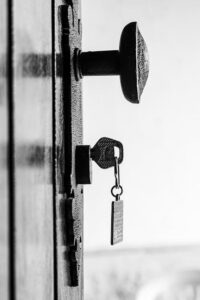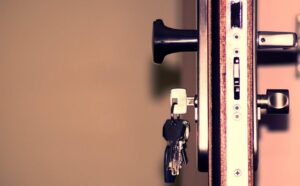In the quiet rhythm of everyday life, our homes stand as sanctuaries-places where safety is not just a comfort, but a necessity. Yet, amid the hustle of moving, losing keys, or simply settling into a new chapter, a common question arises: when is it time to change the locks entirely, and when is rekeying enough? Understanding the subtle differences between these two options can save you not only money but also the peace of mind that comes with secure doors. This article explores the practical considerations behind changing versus rekeying residential locks, guiding homeowners through the decision-making process with clarity and confidence.
Table of Contents
- Understanding the Difference Between Changing and Rekeying Locks
- Evaluating Security Needs After Moving Into a New Home
- Signs That Indicate It’s Time to Change Your Residential Locks
- Cost and Convenience Considerations for Rekeying Locks
- Expert Tips for Choosing the Right Locksmith Service
- Q&A
- Wrapping Up
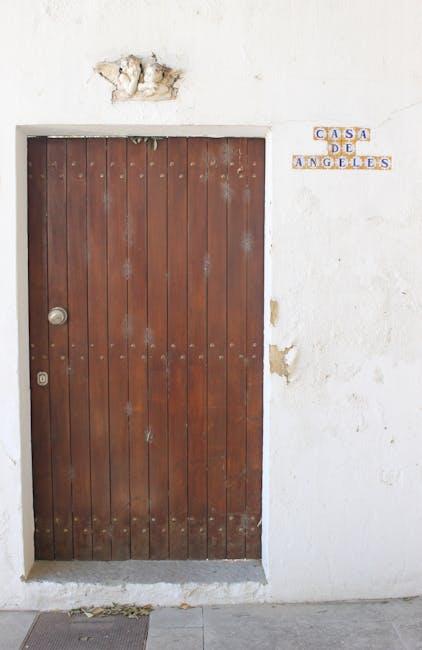
Understanding the Difference Between Changing and Rekeying Locks
When deciding between changing or rekeying your locks, it’s important to grasp the nuances of each option. Changing a lock means completely removing the existing hardware and replacing it with a brand-new lockset. This is often the preferred choice if your current locks are old, damaged, or you want to upgrade to more secure models like smart locks or high-security cylinders. It’s a more comprehensive solution that ensures all components are new and functioning optimally.
On the other hand, rekeying involves altering the internal mechanism of the lock so it works with a new key, while keeping the external hardware intact. This method is typically faster and more cost-effective, especially when you’ve lost your keys, moved into a new home, or want to prevent access without replacing the entire lock. Here’s a quick overview of key differences:
- Cost: Rekeying is generally less expensive than changing locks.
- Time: Rekeying can often be completed within minutes, whereas changing may take longer.
- Security: Changing locks allows for upgrades; rekeying maintains existing security level.
| Factor | Changing Locks | Rekeying Locks |
|---|---|---|
| Cost | Higher | Lower |
| Time Required | Moderate | Quick |
| Security Upgrade | Yes | No |
| Hardware Replacement | Yes | No |
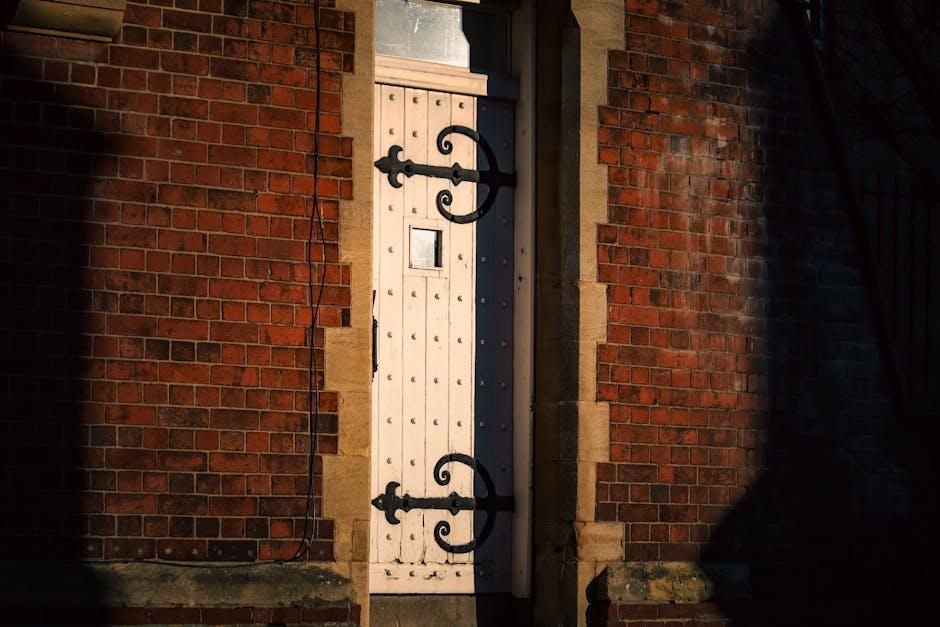
Evaluating Security Needs After Moving Into a New Home
After settling into a new home, it’s crucial to assess the integrity of your existing locks to ensure your family’s safety. Consider who might have access to your keys – previous owners, contractors, or even real estate agents. If there’s uncertainty about the number of people holding keys or if the locks appear worn or outdated, this might signal the need for a change rather than a rekey. Changing locks offers a completely fresh start with new hardware, which is especially valuable if locks are old, damaged, or there has been a security breach in the neighborhood.
In contrast, if the physical locks are in good condition but you simply want to restrict access, rekeying provides an efficient and cost-effective solution. Rekeying resets the internal tumblers of your lock, rendering old keys useless while allowing you to keep the existing hardware intact. Keep in mind that rekeying is ideal when:
- You trust the lock’s condition and style
- You want to control who retains access without replacing entire fixtures
- You prefer a quick security update without extensive installation
| Scenario | When to Change | When to Rekey |
|---|---|---|
| Worn or Damaged Locks | ✔ | ✘ |
| Unknown Key Holders | ✔ | ✔ |
| Cost Efficiency | ✘ | ✔ |
| Upgrading Security Hardware | ✔ | ✘ |
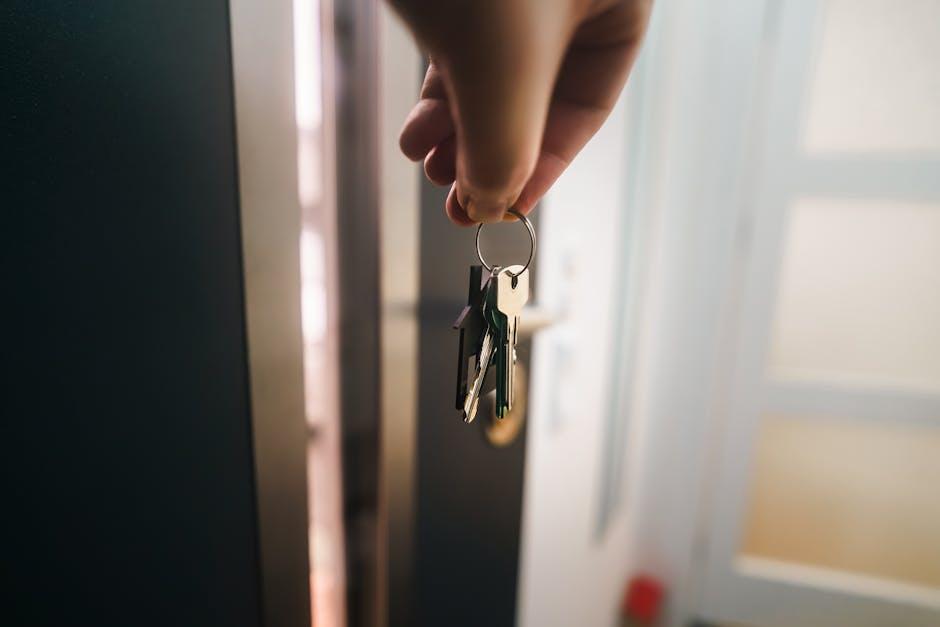
Signs That Indicate It’s Time to Change Your Residential Locks
Knowing when to upgrade your home’s security is essential for peace of mind. If your keys have been lost or stolen, this is a critical red flag that demands an immediate lock change. Additionally, if your locks show signs of wear such as rust, sticking, or difficulty turning, they may no longer provide the protection intended. Another important indicator is when you move into a new residence; changing the locks ensures that previous owners or tenants no longer have access. Unexpected break-ins or attempts to pick your locks should also prompt an urgent change to fortify your home against future threats.
In some situations, the decision might not be clear-cut. Here’s a quick checklist to help you evaluate whether to replace your locks or consider rekeying:
- Number of Lost Keys: Multiple lost keys? Opt for a lock change.
- Lock Age and Condition: Old or damaged locks need replacing.
- Recent Security Breach: Always change locks after break-ins.
- New Residents Moving In: Change locks for full security control.
- Temporary Access Needed: Rekeying is suitable if keys are temporarily misplaced.
| Situation | Recommended Action | Reason |
|---|---|---|
| Lost Master Key | Change Locks | Prevents unauthorized full access |
| Key Misplaced by Family Member | Rekey Locks | Alters key pattern without full replacement |
| Old Locks with Rust | Change Locks | Ensures mechanical reliability |
| New Tenant Move-In | Change or Rekey | Depends on security needs and budget |

Cost and Convenience Considerations for Rekeying Locks
Rekeying locks typically presents a cost-effective alternative to full lock replacement, making it especially appealing for homeowners on a budget. Rather than purchasing brand-new lock hardware, you pay primarily for the labor and new keys, which can significantly reduce upfront expenses. Additionally, since rekeying uses the existing lock mechanism, the process tends to be quicker and less intrusive, allowing for a swift restoration of security without the hassle of removing and installing new hardware. This can be particularly advantageous if you’re aiming for minimal disruption in your busy household.
When weighing convenience, consider that rekeying can be performed on-site, usually in less than an hour, depending on the number of locks involved. This rapid turnaround eliminates the need for extended lockouts or extensive downtime. For those who prefer uniform key access, rekeying enables multiple locks to operate under a single key, streamlining your daily routine. Take a look at the typical cost comparison below:
| Service | Average Cost | Time Required | Convenience Factor |
|---|---|---|---|
| Rekeying | $20 – $50 per lock | 30 – 60 minutes | High – Quick and on-site |
| Replacing Locks | $75 – $150 per lock | 1 – 2 hours | Medium – Requires new hardware |
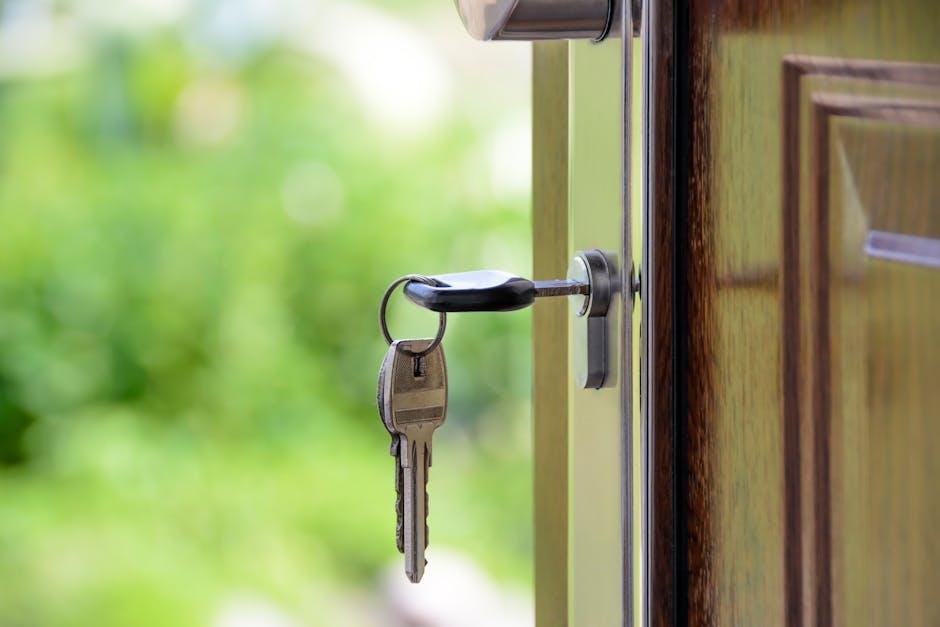
Expert Tips for Choosing the Right Locksmith Service
Finding a locksmith who combines professionalism with affordability is crucial when safeguarding your home. Look for providers with verifiable licenses and positive customer feedback to ensure credible service. Don’t hesitate to ask about their specialization-whether they are adept at residential lock changes or skilled in quick rekeying-since this impacts the quality and speed of the work. Additionally, inquire about service warranties and emergency availability, especially if you require urgent assistance.
Choosing the right locksmith also involves understanding the technology and techniques they employ. Modern locksmiths often offer advanced options, such as smart lock installations and keyless rekeying systems, which can be more secure and convenient. Use the table below to evaluate potential locksmiths on key aspects:
| Criteria | What to Look For | Why It Matters |
|---|---|---|
| Certification | Licensed, insured | Ensures professionalism and protection |
| Experience | Years in residential locks | Guarantees knowledgeable service |
| Response Time | Emergency availability | Critical for lockouts or urgent changes |
| Technology | Smart lock & keyless options | Enhances security and convenience |
Q&A
Q: What does it mean to rekey a lock versus changing a lock?
A: Rekeying a lock involves altering the internal pins of the existing lock cylinder so that the old key no longer works and a new key will operate it instead. Changing a lock means removing the entire lock hardware and replacing it with a new lockset.
Q: When should I consider rekeying my residential locks?
A: Rekeying is ideal if you’ve lost your keys, recently moved into a new home, or want to ensure only you have access without replacing the entire lock. It’s cost-effective and quicker than a full replacement.
Q: In what situations is changing locks the better option?
A: Changing locks is advisable when the lock is damaged, outdated, or if you want to upgrade security with new technology like smart locks. Also, if you’re concerned about break-in attempts or the locks are old and worn out, replacement is best.
Q: Is it safer to change locks rather than rekey?
A: Not necessarily. Rekeying can be just as secure as changing locks if done properly by a professional locksmith. The safety depends more on the quality of the lock and the rekeying job rather than the process itself.
Q: How much does rekeying typically cost compared to changing locks?
A: Rekeying is generally less expensive because it involves only adjusting the existing lock’s internals. Changing locks involves purchasing new hardware and installation, making it pricier.
Q: Can I rekey all types of residential locks?
A: Most traditional pin tumbler locks can be rekeyed easily. However, some high-security or electronic locks may not be rekeyable and would require replacement.
Q: Can I rekey or change locks myself?
A: While DIY kits exist for rekeying and lock replacement, it’s recommended to hire a professional locksmith for precision and security assurance.
Q: How often should I consider rekeying or changing locks?
A: Ideally, rekey your locks when ownership changes or keys are lost. Change locks every 7-10 years or sooner if they show signs of wear, malfunction, or if you want to enhance security features.
Q: What are the benefits of rekeying over changing locks?
A: Rekeying is less disruptive, more affordable, keeps your existing lock hardware intact, and is a quick way to regain control over who has access to your home.
Q: Are there any disadvantages to rekeying?
A: If the lock is old or damaged, rekeying won’t fix mechanical problems. Also, rekeying won’t upgrade your locks’ technology or design if that’s a priority.
Wrapping Up
Deciding whether to change or rekey your residential locks is a nuanced choice that ultimately hinges on your unique circumstances. While rekeying offers a cost-effective way to regain control of who holds the keys, changing locks provides a fresh slate when security concerns run deeper. By understanding the differences and recognizing the signs that warrant each option, you can make an informed decision that safeguards your home and peace of mind. After all, the right key to security is knowing when to turn it.



